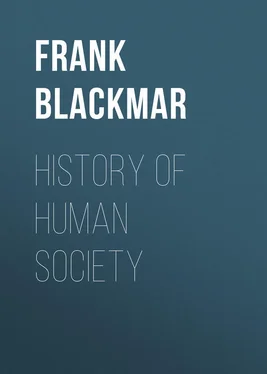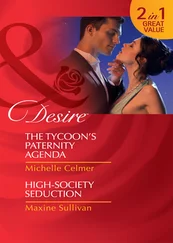Frank Blackmar - History of Human Society
Здесь есть возможность читать онлайн «Frank Blackmar - History of Human Society» — ознакомительный отрывок электронной книги совершенно бесплатно, а после прочтения отрывка купить полную версию. В некоторых случаях можно слушать аудио, скачать через торрент в формате fb2 и присутствует краткое содержание. ISBN: , Жанр: foreign_antique, foreign_prose, на английском языке. Описание произведения, (предисловие) а так же отзывы посетителей доступны на портале библиотеки ЛибКат.
- Название:History of Human Society
- Автор:
- Жанр:
- Год:неизвестен
- ISBN:http://www.gutenberg.org/ebooks/30610
- Рейтинг книги:3 / 5. Голосов: 1
-
Избранное:Добавить в избранное
- Отзывы:
-
Ваша оценка:
- 60
- 1
- 2
- 3
- 4
- 5
History of Human Society: краткое содержание, описание и аннотация
Предлагаем к чтению аннотацию, описание, краткое содержание или предисловие (зависит от того, что написал сам автор книги «History of Human Society»). Если вы не нашли необходимую информацию о книге — напишите в комментариях, мы постараемся отыскать её.
History of Human Society — читать онлайн ознакомительный отрывок
Ниже представлен текст книги, разбитый по страницам. Система сохранения места последней прочитанной страницы, позволяет с удобством читать онлайн бесплатно книгу «History of Human Society», без необходимости каждый раз заново искать на чём Вы остановились. Поставьте закладку, и сможете в любой момент перейти на страницу, на которой закончили чтение.
Интервал:
Закладка:
Groups, either tribes, races, or nations, may advance along given lines and be stationary or even retarded along other lines of development. If the accumulation of wealth is the dominant ideal, it may be so strenuously followed as to destroy opportunity for other phases of life. If the flow of energy is all toward a religious belief that absorbs the time and energy of people in the building of pyramids, mausoleums, cathedrals, and mosques, and taboos the inquiry into nature which might yield a large improvement in the race, religion would be developed at the expense of race improvement.
Change Is Not Necessarily Progress . – It is quite common in a popular sense for people to identify change with progress, or indeed to accept the wonderful changes which take place as causes of progress, when in reality they should have taken more care to search out the elements of progress of the great moving panorama of changing life. Changes are frequently violent, sudden, tremendous in their immediate effect. They move rapidly and involve many complexes, but progress is a slow-going old tortoise that plods along irrespective of storm or sunshine, life or death, of the cataclysms of war or the catastrophes of earthquakes or volcanoes. Progress moves slowly along through political and social revolutions, gaining a little here and a little there, and registering the things that are really worth while out of the ceaseless, changing humanity.
Achievement may take place without betterment, but all progress must make a record of betterment with achievement. A man may write a book or invent a machine at great labor. So far as he is concerned it is an achievement, but unless it is a good book, a good invention, better than others, so that they may be used for the advancement of the race, they will not form a betterment. Many of the changes of life represent the results of trial and error. "There is a way that seemeth right" to a nation which may end in destruction. The evil aroused is sometimes greater than the good. The prosperity of the Roman Empire was destroyed because of luxury and corrupt administration. The German Empire developed great powers in government, education, in the arts and sciences, but her military purpose nearly destroyed her. The Spanish Empire that once controlled a good part of the American continent failed because laborers were driven out of Spain and the wealth gained by exploitation was used to support the nobility and royalty in luxury. Whether the United States will continue to carry out her high purposes will depend upon the right use of her immense wealth and power. Likewise the radio, the movie, and the automobile are making tremendous changes. Will the opportunities they furnish improve the moral and intellectual character of the people – a necessary condition to real progress?
In considering modern progress, too frequently it is estimated by the greatness of things, by the stupendous changes, or by the marvellous achievements of the age, and we pause and wonder at what has been accomplished; but if we think long enough and clearly enough, we may get a vision of real progress, and we may find it difficult to determine the outcome of it all, so far as the real betterment of the race is concerned. Is the millionaire of to-day any happier, necessarily, and any more moral or of a higher religious standard than the primitive man or the savage of the plains or forest of to-day? True, he has power to achieve in many directions, but is he any happier or better? It may be said that his millions may accomplish great good. This is true if they are properly applied. It is also true that they are capable of great harm if improperly used.
As we stand and gaze at the movements of the airplane, or contemplate its rapid flight from ocean to ocean and from land to land around the world, we are impressed with this great wonder of the age, the great achievement of the inventive power of man. But what of the gain to humanity? If it is possible to transport the mails from New York to San Francisco in sixteen hours instead of in five days, is there advantage in that except the quickening process of transportation and life? Is it not worth while to inquire what the man at the other end of the line is going to do by having his mail four days ahead? He will hurry up somebody else and somebody else will hurry the next one, and we only increase the rapidity of motion. Does it really give us more time for leisure, and if so, are we using that leisure time in the development of our reflective intellectual powers or our spiritual life? It is easier to see improvement in the case of the radio, whereby songs and lectures can be broadcast all over the earth, and the community of life and the community of interest are developed thereby, and, also, the leisure hours are devoted to a contemplation of high ideals, of beautiful music, of noble thoughts. We do recognize a modicum of progress out of the great whirring, rapid changes in transportation and creative industry; but let us not be deceived by substituting change for progress, or making the two identical.
Thus human progress is something more than achievement, and it is something more than the exhibition of tools. It is determined by the use of the tools and involves betterment of the human race. Hence, all the products of social heredity, of language, of science, of religion, of art, and of government are progressive in proportion as they are successfully used for individual and social betterment. For if government is used to enslave people, or science to destroy them, or religion to stifle them, there can be no progress.
Progress Expresses Itself in a Variety of Ideals and Aims . – Progress involves many lines of development. It may include biological development of the human race, the development of man, especially his growth of brain power. It may consider man's adaptation to environment under different phases of life. It may consider the efficiency of bodily structure. In a cultural sense, progress may refer to the products of the industrial arts, or to the development of fine arts, or the advancement of religious life and belief – in fact, to the mastery of the resources of nature and their service to mankind in whatever form they may appear or in whatever phase of life they may be expressed. Progress may also be indicated in the improvement in social order and in government, and also the increased opportunity of the individual to receive culture through the process of mutual aid. In fact, progress must be sought for in all phases of human activity. Whatever phase of progress is considered, its line of demarcation is carefully drawn in the process of change from the old to the new, but the results of these changes will be the indices of either progress or retardation.
Progress of the Part and Progress of the Whole . – An individual might through hereditary qualities have superior mental traits or physical powers. These also may receive specific development under favorable educational environment, but the inertia of the group or the race might render ineffective a salutary use of his powers. A man is sometimes elected mayor of a town and devotes his energies to municipal betterment. But he may be surrounded by corrupt politicians and promoters of enterprises who hedge his way at every turn. Also, in a similar way, a group or tribe may go forward, and yet the products of its endeavor be lost to the world. Thus a productiveness of the part may be exhibited without the progress of the race. The former moves with concrete limitations, the latter in sweeping, cycling changes; but the latter cannot exist without the former, because it is from the parts that the whole is created, and it is the generalization of the accumulated knowledge or activities of the parts that makes it possible for the whole to develop.
The evolution of the human race includes the idea of differentiation of parts and a generalization that makes the whole of progress. So it is not easy to determine the result of a local activity as progressive until its relation to other parts is determined, nor until other activities and the whole of life are determined. Local colorings of life may be so provincial in their view-point as to be practically valueless in the estimation of the degree and quality of progress. Certain towns, especially in rural districts not acquainted with better things, boast that they have the best school, the best court-house, the best climate – in fact, everything best. When they finally awaken from their local dream, they discover their own deficiencies.
Читать дальшеИнтервал:
Закладка:
Похожие книги на «History of Human Society»
Представляем Вашему вниманию похожие книги на «History of Human Society» списком для выбора. Мы отобрали схожую по названию и смыслу литературу в надежде предоставить читателям больше вариантов отыскать новые, интересные, ещё непрочитанные произведения.
Обсуждение, отзывы о книге «History of Human Society» и просто собственные мнения читателей. Оставьте ваши комментарии, напишите, что Вы думаете о произведении, его смысле или главных героях. Укажите что конкретно понравилось, а что нет, и почему Вы так считаете.












